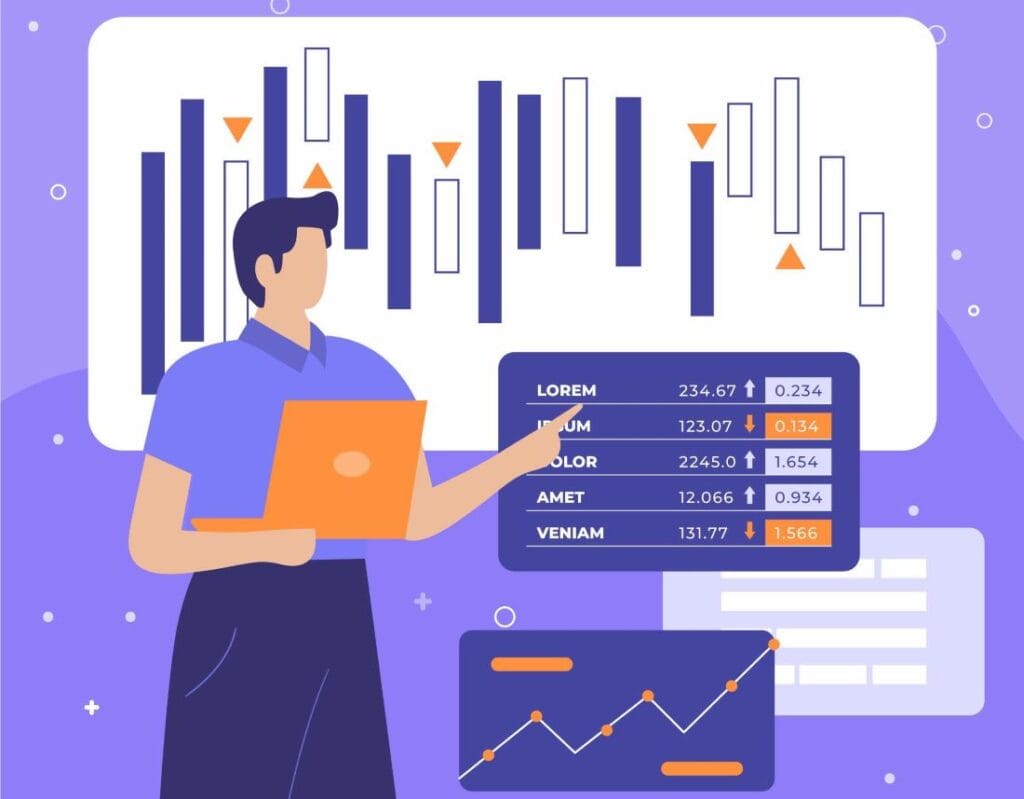Large-cap stocks are one of the most favored equity instruments by experts and beginners. When investing in these stocks, one should consider the market and global events. This article will introduce large-cap stocks as an investment instrument. It will evaluate their strengths and weaknesses. Lastly, it will determine the potential of large-cap stock investment in the year 2024.

What are large-cap stocks?
Generally, large caps are the top 100 stocks with highest market capitalization. Usually, these companies have been operating for long time and have good financial standing.
Large-cap stocks are in the top 70% of market capitalization. These include Nestle India, Reliance, Adani, TCS, etc.
Over the long run, investing in large-cap stocks is safer than others because of their steady and predictable nature.
Large cap stocks are also referred to by investors due to their liquidity, as they are frequently traded on major exchanges, making it simpler to enter and exit holdings.
Pros & Cons of Investing in Large-Cap Stocks
Let’s see the pros and cons of investing in large-cap stocks.
Pros of Investing in Large Cap Stocks
Potential for Steady Growth: These stocks are known to provide sustainable long-term returns. They have expanded well in the market and have strong financial standing. Hence, they deliver consistent performance to investors. Furthermore, their brand awareness and market share put them in a position to take advantage of new opportunities and successfully negotiate constraints in the market.
Resilience During Market Volatility: Due to less volatility in large-cap shares, investors are assured of steady returns. These companies have large-scale operations, with diverse portfolios. They are financially stable and comparatively resistant to cyclical fluctuations. This stability offers investors confidence, especially in times of economic upheaval.
Dividend Yields: Most large-cap firms provide their shareholders with dividends. This aims to provide investors with a steady income along with profits on their investments. These are significant for income investors who want to reinvest their dividends to earn additional gains from stock price appreciation.
Cons of Investing in Large-Cap Stocks
Market Fluctuations and Economic Downturns: Large-cap stocks are comparatively more stable than other types of stocks. However, they are still dependent on the market and economy. Their stock prices may drop due to unforeseen factors such as global recession, conflicts, or specific industry-related challenges.
Overvaluation Concerns: Large-cap stocks may be overpriced, particularly, when there is a long bull run in the market. During extended periods of bullish sentiment, investor optimism, and speculative buying can lift large-cap stock values to levels that exceed their fundamental value.
Lower Return Compared to Mid- and Small-Cap Stocks: Although investing in large-cap stocks is considered safe due to better growth indicators, they are not as effective in terms of return rate compared to mid- and small-cap stocks. It may pose more challenges for growth-seeking investors than those interested in both, large-cap investments and growth.
Conclusion
Choosing large-cap stocks in 2024 is wise for investors seeking higher stability, sustainable growth, and income through dividends. But there might be some challenges, such as fluctuations in the market and overestimation of a potential partner. Hence, any investor should conduct adequate and efficient research. They should understand financial objectives and tolerance towards risk. During recessions, large-cap stocks frequently show resilience, offering investors a safety net.











